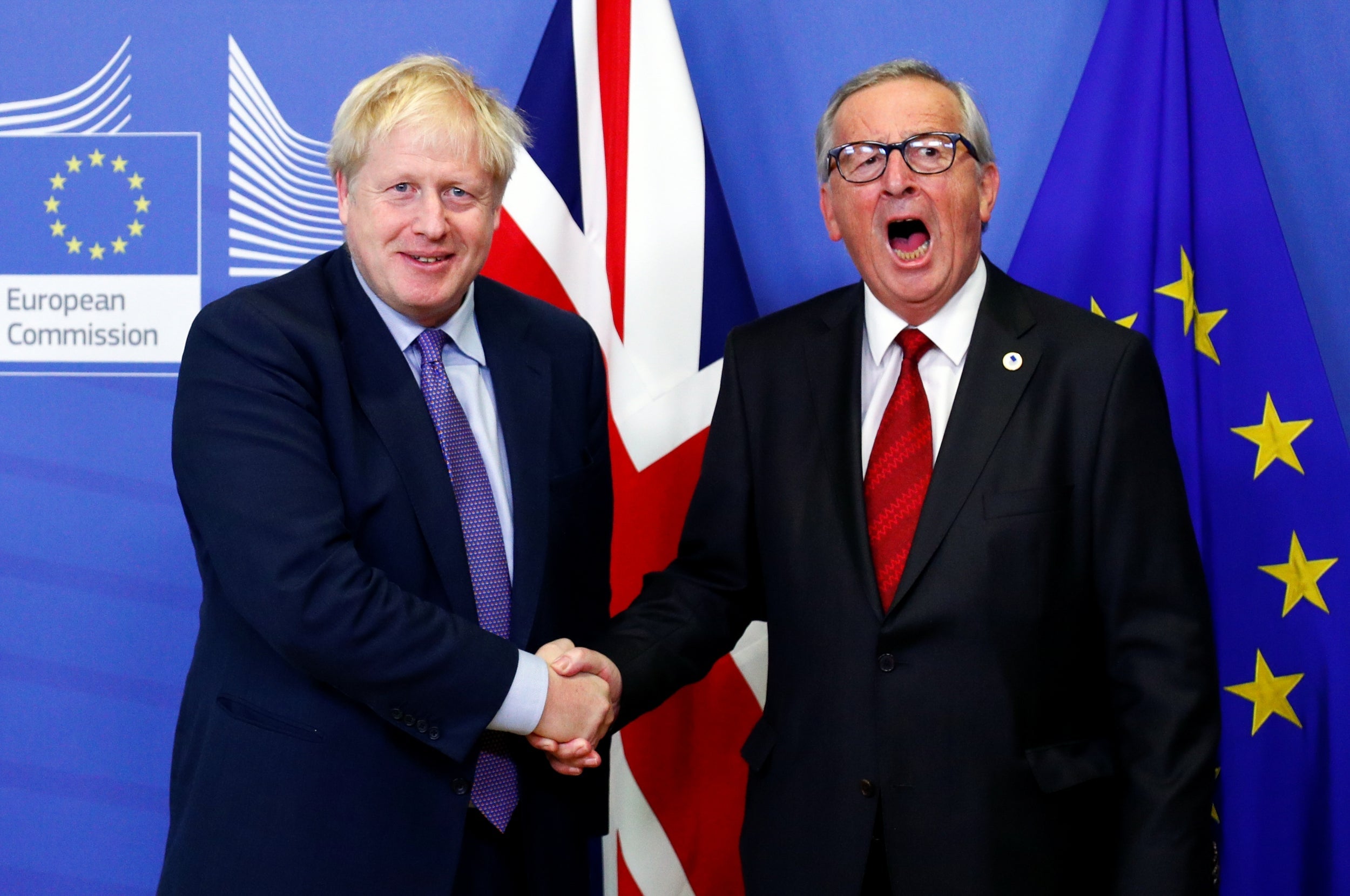EU insiders admit they’ll grant yet another Brexit extension. Boris is lying when he says it’s his deal or nothing
Inside Westminster: The PM is ‘very confident’ MPs will back his deal but he can’t be so sure. Tory whips calculated the vote was on a knife edge when they had the DUP’s support – and now Johnson has lost them

Boris Johnson frames the choice for MPs in Saturday’s momentous Commons vote on Brexit as “my deal or no deal”. He is wrong, there is a third way. If MPs reject an agreement that would do more economic harm than Theresa May’s, the UK would not crash out without a deal on 31 October.
At the Brussels summit, Mr Johnson made a rather ham-fisted attempt to persuade EU leaders to warn MPs it was “this deal or no deal” because they would not sanction a further extension of UK membership. Jean-Claude Juncker played along, saying there would be “no prolongation.” He wants the Brexit box ticked on his legacy list as he stands down as European Commission president. But his remarks irritated national leaders who took a vow of silence on an extension: by convention, the EU keeps its nose out of domestic politics.
There was also irritation in Brussels about the way the agreement got over the line. As a rules-based club, the EU likes to do things by the book. Ambassadors from member states were miffed they didn’t see the final text before national leaders signed it off and the frenzy over a done deal erupted.
Despite that, several Brussels sources told me the EU would definitely approve an extension if MPs reject the deal and Johnson is forced by the Benn Act to seek a three-month extension. “We do not want to be blamed for no deal,” one said.
Indeed, there’s so little doubt about it that I’m told the 27 leaders could even agree an extension by telephone rather than hold an emergency summit. They haven’t discussed the length of an extension yet and would probably agree to whatever the UK requested. If they proposed six months, that would be see as interfering, and an invitation to hold a Final Say referendum.
It will seem odd to many on the People’s Vote march that MPs are unlikely to vote on a referendum on the big day. But it’s the right call to delay such a vote. Some Labour backbenchers – who could decide what will be a very close vote – agonising over the deal oppose a referendum, so would be more likely to “back Boris” if the agreement were coupled with a public vote. While there is not a majority for a referendum yet, campaigners for one are convinced that, if the deal is rejected, a majority of MPs would then support a Final Say vote. They include some of the 21 former Tory MPs who lost the whip; they will back the deal but would see no alternative to going back to the people if the Commons again failed to resolve the issue.
Mr Johnson will doubtless warn MPs a referendum would mean a further delay. The “Brexhaustion factor” will probably mean some undecided MPs moving into the PM’s column before tomorrow’s debate. Many MPs will vote after a sleepless night. One issue in the minds of Labour waverers will be: who would be in the same division lobby if they back the agreement? I was struck that John Baron, a Tory Eurosceptic who opposed Ms May’s deal, will vote for this one because it includes another no-deal cliff edge when the transitional period ends in December 2020. There is zero chance of a free trade agreement being ready by then.
Mr Johnson is “very confident” MPs will back his deal, but he can’t be so sure. Tory whips calculated the vote was on a knife edge when they thought the DUP’s 10 MPs would support it. Without them, the prime minister has his work cut out.
If he loses, he has a cunning Plan B, or perhaps I should say Plan E for election. He would seek an immediate general election, and his deal would be the centrepiece of the Tory manifesto, with back-up pledges on the NHS, schools, crime, immigration and the cost of living. I think this would be a much more solid platform than if Mr Johnson had failed to secure an agreement, and in effect sought an election mandate for no deal.
After a Commons defeat, he could ask Leave voters in Labour-held seats in the north and Midlands to endorse his ready-made deal to “get Brexit done”. If they gave him the benefit of the doubt, he would squeeze the support of Nigel Farage’s Brexit Party. Crucially, Mr Johnson could tell moderate Tory voters in the south there would be no risk of no deal, a threat which might have driven them into the arms of the Liberal Democrats or Labour.
Jeremy Corbyn would find it hard to suppress his own desire for an election once no deal had been taken off the table. But a contest after MPs had blocked Mr Johnson’s agreement would be very dangerous for Labour. I suspect senior figures including John McDonnell would try to talk Mr Corbyn out of it, and keep the PM waiting for an election until spring. His justification? He couldn’t say “because Labour would lose an early election”. He would have only one reason: to provide time for a Final Say referendum. And then he would have to make sure it happened.
Join our commenting forum
Join thought-provoking conversations, follow other Independent readers and see their replies
Comments